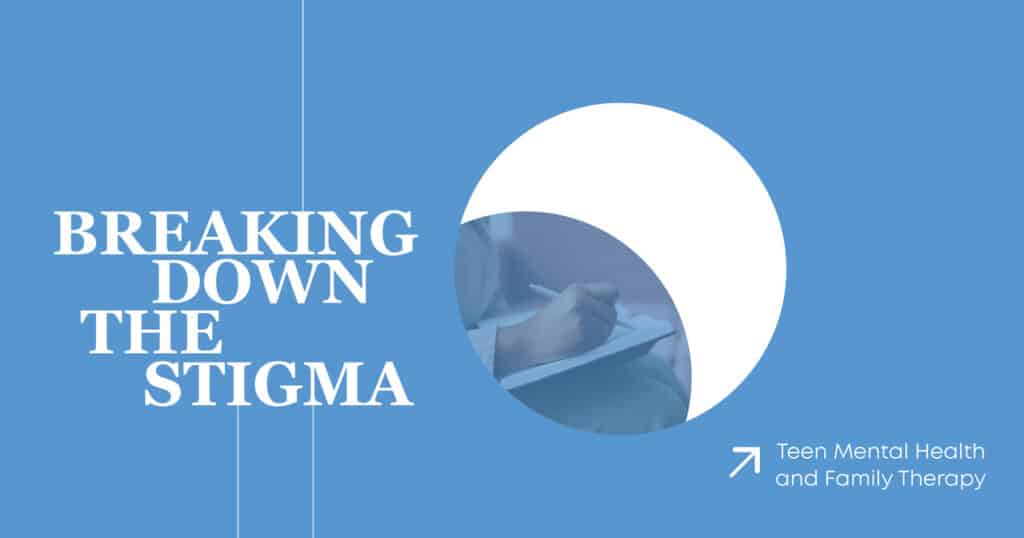Introduction
The teenage years are a tumultuous time filled with emotional and psychological changes. For many teens, navigating this period can be challenging, and mental health issues often arise. Unfortunately, the stigma surrounding mental health challenges can prevent teens from seeking the help they need. Substance abuse and other risky behaviors can further complicate their mental health struggles. Mental health conditions, such as attention-deficit/hyperactivity disorder or bipolar disorder, can also exacerbate difficulties. Family therapy offers a supportive and practical approach to breaking down this stigma and promoting better mental health treatment for teens. In this comprehensive guide, we’ll explore the benefits of family therapy for teen mental health, how it works, and why it’s an essential tool for families.
Understanding the Stigma Around Teen Mental Health
The Roots of Stigma
The stigma around mental health disorders is deeply ingrained in society. Many people still hold old-school beliefs and misconceptions about mental illness, viewing it as a sign of weakness or something to be ashamed of. This stigma can be particularly harmful to school students, who are already dealing with peer pressure and a desire to fit in. Mental health conditions such as teen depression and suicidal ideation often go unaddressed due to this stigma. Additionally, community factors and environmental factors can intensify the stigma in certain regions, leading to limited access to mental health services and resources.
The Impact of Stigma on Teens
The stigma surrounding mental illnesses can have severe consequences for teens. It can prevent them from seeking help, exacerbate feelings of isolation, and contribute to worsening mental health conditions. Teens may fear being judged or labeled if they open up about their struggles, leading to a cycle of silence and suffering. Mental health struggles, such as Obsessive-compulsive disorder or Generalized Anxiety Disorder, can be particularly challenging to manage without support. The impact of illicit drugs and negative emotions often complicates the recovery process for many teens.
What is Family Therapy?
Definition and Purpose
Family therapy is psychological counseling that helps family members improve communication and resolve conflicts. It is based on the belief that the family unit plays a crucial role in mental health care and that addressing issues within this unit can lead to better outcomes for individuals. This form of therapy is particularly effective in addressing behavioral health conditions and psychiatric disorders that may affect children & youth. It involves various family therapy approaches designed to address specific family dynamics and interactions among family members.
How Family Therapy Works
Family therapy involves sessions where family members meet with a licensed therapist to discuss their issues and work on improving their relationships. The therapist guides the family through techniques that address challenges like acting-out behavior, destructive behavior, and aspects of behavior tied to mental health disorders. Communication skills training and conflict resolution are often integrated to enhance understanding.
Benefits of Family Therapy for Teen Mental Health
Improved Communication
Effective communication is the heart of healthy relationships. Family therapy helps teens and their family members learn to communicate more openly and honestly, which can reduce misunderstandings and foster a supportive environment. Care in schools is also enhanced when students have the skills to express their feelings.
Enhanced Emotional Support
Family therapy provides a safe space for teens to express their feelings and get emotional support from their loved ones. This support can be crucial in helping teens navigate their mental health challenges. Creating a supportive home environment is essential for teens dealing with difficult feelings, including persistent feelings of sadness.
Conflict Resolution
Families often experience conflicts that can strain relationships and impact mental health. Family therapy teaches conflict resolution skills, helping family members address disagreements constructively and healthily. Conflict resolution skills are especially important for teens experiencing depressive disorders or anxiety symptoms.
Strengthened Family Bonds
Participating in family therapy can strengthen the bonds between family members. Working together to overcome challenges fosters unity and resilience, which is beneficial for everyone involved. Mental health care for teens can be more effective when the family system is supportive, reducing the risk of suicidal behaviors.
Better Understanding of Mental Health
Family therapy educates all members about mental health conditions, reducing stigma and promoting a more informed and compassionate approach to dealing with these challenges. Understanding mental health disorders like anorexia nervosa and autism spectrum disorder can lead to greater empathy and support for the teen experiencing them.
How Family Therapy Supports Teen Mental Health
Addressing Root Causes
Family therapy delves into the underlying issues that may be contributing to a teen’s mental health problems. For instance, untreated attention deficit disorder can impact a teen’s ability to succeed academically and socially. Therapy also identifies adverse childhood experiences that could be affecting behavior and mental health care.
Building Coping Skills
Therapists teach healthy coping skills that teens and their family members can use to manage stress and difficult emotions. Skills that address traumatic events and depressive episodes are especially critical for teens dealing with anxiety disorders.
Creating a Supportive Environment
A supportive home environment is crucial for teen mental health. Family therapy helps create an atmosphere where teens feel safe, understood, and supported, making it easier for them to thrive. Mental health services and behavioral health care become more effective when family members participate actively in the healing process.
How to Get Started with Family Therapy
Finding a Qualified Therapist
Finding a licensed therapist with experience in this field is essential when considering family therapy. Look for professionals who specialize in family dynamics and youth mental health, particularly adolescent medicine specialists or those trained in mental health surveillance.
Setting Goals
Before starting therapy, discuss your goals with the therapist. Clear objectives, such as improving school experiences or reducing acting-out behavior, will guide the sessions. Goals related to addressing behavioral health care and treatment of depression should be prioritized.
Committing to the Process
Family therapy requires commitment from all members. Regular attendance and active participation are vital to achieving the best results. A strong family foundation can provide a protective layer against risk factors like exposure to social media platforms and technology companies, both of which can contribute to negative emotions.
FAQs
Q: What is the primary goal of family therapy?
A: The main goal of family therapy is to enhance communication, resolve conflicts, and strengthen the relationships within the family unit to support better mental health outcomes.
Q: Is family therapy suitable for all teens?
A: Family therapy can benefit many teens but may not suit everyone. It’s essential to consult with a qualified therapist to determine if it’s the right fit for your family.
Q: How long does family therapy typically last?
A: The duration of family therapy can vary depending on the issues being addressed and the treatment goals. Some families may see improvement in a few weeks, while others may need several months of sessions.
Q: Can family therapy be combined with other forms of treatment?
A: Yes, family therapy is often used with individual therapy, Cognitive-Behavioral Therapy (CBT), or medication to provide a comprehensive treatment plan.
Conclusion
Breaking down the stigma surrounding teen mental health is crucial for promoting better outcomes. Family therapy offers a powerful tool for achieving this goal, providing a supportive environment where teens can thrive. If you or a loved one is considering family therapy, seek out a qualified professional to guide you through this transformative process.transformative process.
Empower Teen Mental Health with Family Therapy
If you or someone you know is considering family therapy, don’t hesitate to seek professional guidance. The proper support and a tailored approach can make all the difference in your cognitive health journey. Family therapy programs and mental health treatment options are available to help you navigate this phase of life effectively.





